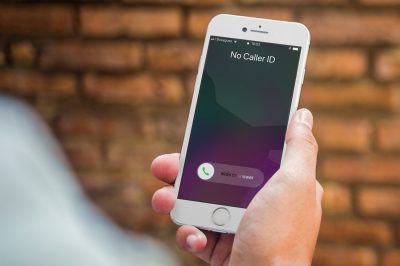- Lemberg Law
- FDCPA – Debt & Credit Complaints
- Debt Collection FAQ’s
- How to Stop Debt Collectors from Calling?
Under the Fair Debt Collection Practices Act, a debt collector must stop calling if you ask them to stop, if you tell them that they are calling at an inconvenient time or place, if you have an attorney, or if you send a cease and desist letter. If a debt collector continues to call, they are in violation of the FDCPA.
Debt collection calls can be unnerving. If debt collectors have been calling you and you want them to stop, you’re in good company. The good news is that you are within your rights to stop debt collection calls and that those rights are protected under the federal Fair Debt Collection Practices Act (FDCPA).
There are four primary ways you can stop debt collectors from calling:
- Ask the debt collector to stop calling you.
- Tell the debt collector that it is inconvenient for you to receive calls.
- Send a cease and desist letter.
- Engage an attorney to represent you.
Ask the debt collector to stop calling
If you are on the receiving end of debt collection calls and you want them to stop, your first line of defense is to request that they stop calling. In theory and under the law, they should respect your wishes and the calls should stop. In practice, debt collection agencies are known to continue to call even after being asked to stop. In Gilroy vs. Ameriquest Mortg. Co., Ms. Gilroy told the debt collector to stop calling her, but the collection agency nonetheless kept calling. The court ruled that that the debt collection agency was in violation of the FDCPA.
If you tell a debt collector to stop calling, make sure to note the date and time of the call, with whom you spoke, and what was said. This could be important should the debt collection agency not respect your wishes and you end up alleging FDCPA violations.
Tell the debt collector that is inconvenient for you to receive calls
According to the FDCPA (15 U.S.C. 1692c(a)(1)), a debt collector is prohibited from calling at a time or place known to be inconvenient. The law says that calls after 9:00 p.m. and before 8:00 a.m. are presumed to be inconvenient, but that you can tell a debt collector that another time is inconvenient.
A later provision of the FDCPA (15 U.S.C. 1692c(a)(3)) outlines that a debt collector can’t call your workplace if they know that your employer doesn’t allow such calls. In other words, if you tell a debt collector to stop calling you at work because you’re not allowed to receive personal calls there, they must refrain from calling your workplace. In Chiverton vs. Fed. Fin. Grp., Inc., the court determined that the debt collection agency had violated the law when a debt collector repeatedly called Mr. Chiverton at work even though Mr. Chiverton told him to stop.
Send a cease and desist letter
If you want debt collection calls to stop, you can send the debt collection agency a cease and desist letter. A cease and desist letter can be straightforward; provide your name, address, and account information, along with a statement that you want the debt collection agency to stop communicating with you about the debt in question. According to the FDCPA (15 U.S.C. 1692c(c)), the debt collection agency must cease all communications, except for a letter saying that they will no longer try to collect the debt or to notify you that they are pursuing a different action, such as taking you to court. It’s important to note that sending a cease and desist letter does not eradicate any debt you may owe – and the collector might pursue legal remedies – but the calls should stop.
Get legal representation
If you have legal representation, such as a bankruptcy attorney or a fair debt attorney, debt collectors must stop calling you. Under the FDCPA (15 U.S.C. 1692b(6)), once you have an attorney, all communication regarding the debt must go through the attorney. You just need to provide the debt collector with your attorney’s name and contact information.
While it may seem odd to have legal representation, many consumers who have experienced debt collection harassment reach out to fair debt attorneys to assert their rights under the FDCPA. The law relies on private citizens to sue in federal court to hold debt collectors accountable. If a debt collection agency is found to be in violation of the FDCPA, the consumer can recover up to $1,000 in statutory damages, plus court costs and attorney fees.
Lemberg Law has a team devoted to representing people who have been harassed, threatened, deceived, or abused by debt collectors. Call 844-685-9200 and receive a free consultation, or submit our online request form.
Case citations
Gilroy vs. Ameriquest Mortg. Co., 632 F. Supp. 2d 132, 136 (D. N.H. 2009)
Chiverton vs. Fed. Fin. Grp., Inc., 399 F. Supp. 2d 96, 99-100 (D. Conn. 2005)
Have questions? Call us now at 855-301-2100 for a Free Case Evaluation.
Our services are absolutely FREE to you.
The harassing company pays our fees.
